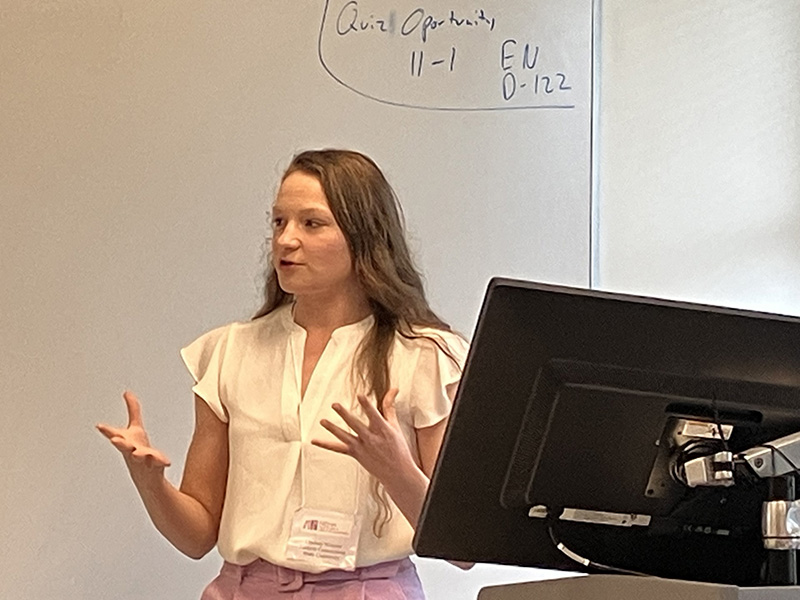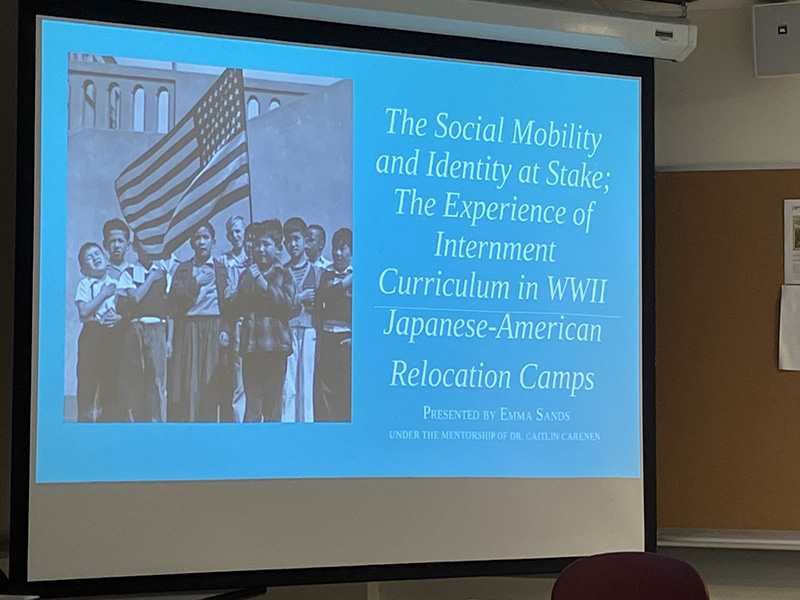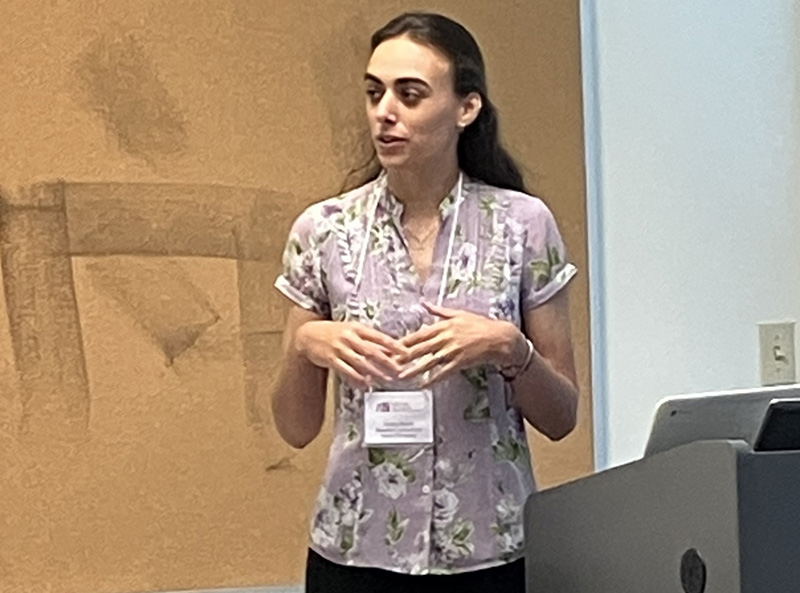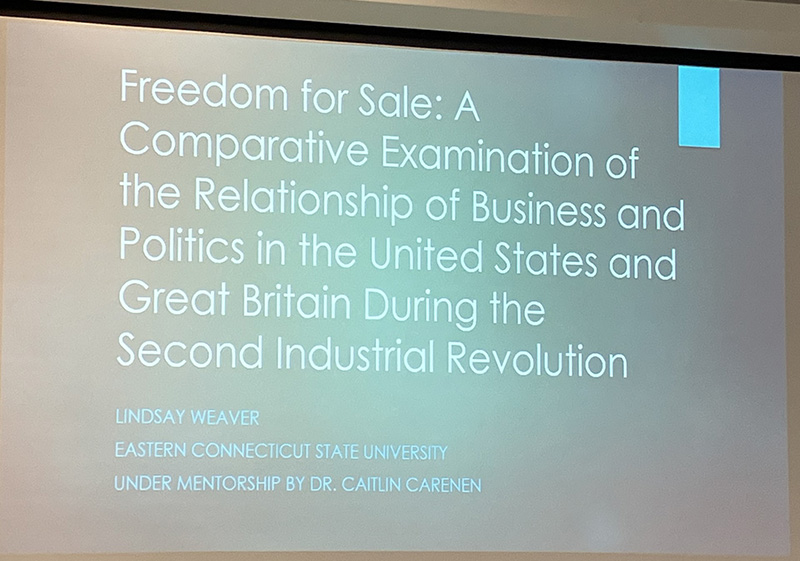- Apply
- Visit
- Request Info
- Give
Honors history students present at New England conference
Written by Lucinda Weiss
Published on November 02, 2023
The education of children in Japanese American relocation camps in the United States during World War II and the threats posed to democracy by corporate interests near the turn of the 20th century were research topics examined by two history majors at Eastern Connecticut State University at the recent New England Historical Association annual meeting.
Seniors Emma Sands and Lindsay Weaver were chosen to present their honors thesis work at the meeting. “The applications were competitive, and their acceptance into the conference was an honor well deserved,” said their mentor, history Professor Caitlin Carenen. “They were able to present their work to professional historians, tenured faculty and emeriti faculty from across New England,” she said.
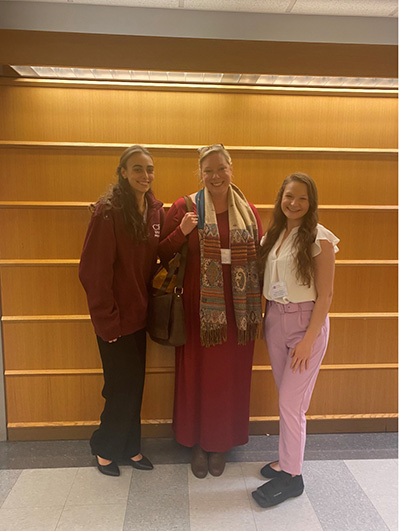
Sands studied the memoirs of children who were interned in the Japanese American camps to find out how their education evolved. The emphasis was on vocational education, and students could leave the camps through a work release program if they found jobs. Many took menial jobs to get away from the camps, she learned, even though their parents disapproved and wanted them to seek higher education and have more social mobility.
Among the online sources she studied was the Clara Breed Collection of letters at the Japanese American National Museum. Breed, a children’s librarian in San Diego, corresponded with her young patrons and their families when they were sent to the camps.
Sands, who is also a social sciences student, hopes to become a high school history teacher and will attend Eastern for a master’s degree in secondary education.
Weaver researched how corporate interests influenced politics during the second industrial revolution in the United States from 1870 to the early 1900s and in Great Britain, where the technological revolution came earlier. While the role of government is to serve its people, the economic incentives of government helping big companies thrive were more influential, she found.
The resulting economic disparities in society reminded her of current times, she said. While big corporations generated huge profits, sometimes unethically, “there was a huge loss of social standards as well,” she said.
Weaver is planning to attend graduate school in education and plans to be a high school history teacher or to continue her research in higher education.



